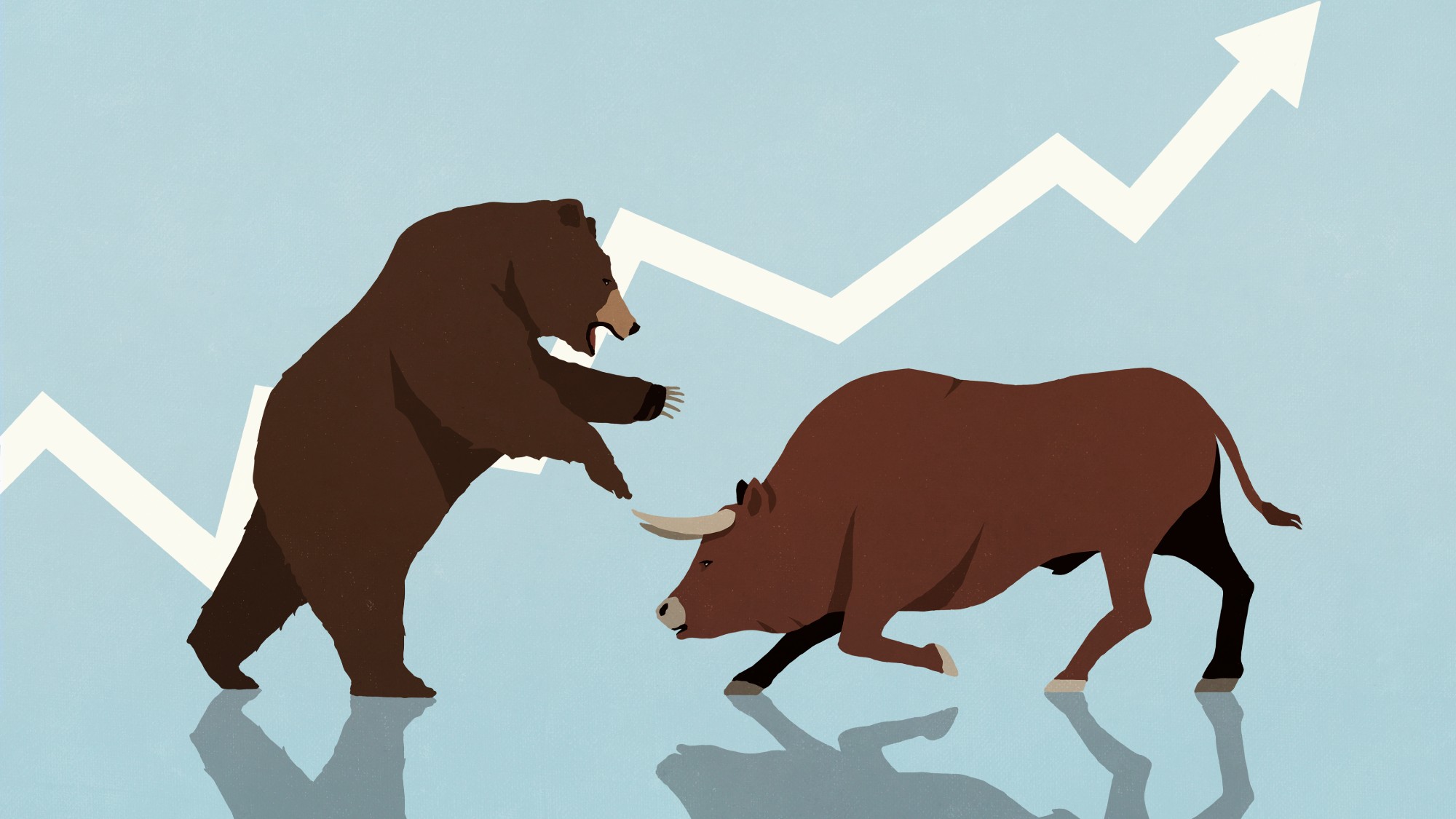What’s the difference between a bull market and bear market?
How to tell if the market is soaring or slumping.


A free daily email with the biggest news stories of the day – and the best features from TheWeek.com
You are now subscribed
Your newsletter sign-up was successful
It’s a bull, it’s a bear, it’s a — what? You may have heard these terms thrown around in reference to what the stock market is currently doing. In short, a bull market is one that is on the up-and-up, whereas a bear market is on the decline.
So, which one are we in now? As it turns out, the bull and the bear are not so easy to spot — at least not in the moment. While these terms are “often misused as a prescription for the future,” in actuality, they are intended to describe market conditions that have come and may already be gone, said The New York Times.
What is a bull market?
A ‘bull market’ refers to a market that is “on the rise and where the conditions of the economy are generally favorable,” said Investopedia. Commonly, this rise is “defined as a 20% or more increase” in asset prices “from their most recent low,” though it can also “refer to a price spike in a specific market,” said Bankrate.
The Week
Escape your echo chamber. Get the facts behind the news, plus analysis from multiple perspectives.

Sign up for The Week's Free Newsletters
From our morning news briefing to a weekly Good News Newsletter, get the best of The Week delivered directly to your inbox.
From our morning news briefing to a weekly Good News Newsletter, get the best of The Week delivered directly to your inbox.
When the market is bullish, investors are typically feeling good, buoyed by solid economic conditions and a sense of optimism about where markets are headed. This “drives demand for stocks and pushes prices higher,” similar to a bull “thrusting its horns upward,” hence the name, said personal finance blog SmartAsset.
What is a bear market?
A bear market is “one that is in decline,” though a market is “usually not considered a true ‘bear’ market unless it has fallen 20% or more from recent highs,” said Investopedia. Again, this term can refer to just one asset class.
The cause of the downward trend can be a “slowing or sluggish economy, high inflation, rising interest rates, geopolitical instability, substantial shifts in the economy and other factors that impact investor sentiment and create uncertainty,” said Bankrate. These markets “tend to occur before an economic downturn and may signal a recession,” as was the case with “the Great Depression, the dot-com bubble, the Great Recession and as the pandemic started in February 2020.”
Understandably, these market conditions leave investors feeling less optimistic, in turn slowing down trading. The good news: “Bear markets almost never last as long as bull markets,” said The Motley Fool, an investing blog.
A free daily email with the biggest news stories of the day – and the best features from TheWeek.com
How should you approach investing in a bull vs. bear market?
Given the major implications of the differences between a bull vs. a bear market, it may seem like it makes sense to pivot your investment plan accordingly. But “by the time investors recognize a bear or bull market is happening, it’s often too late to shift strategies,” said Bankrate.
If you are a “buy-and-hold investor, you probably shouldn’t change your investing strategy based on prevailing market conditions,” said The Motley Fool. Instead, strategies like diversification and dollar-cost averaging, where you regularly invest regardless of price, will help your portfolio stay on track no matter if the market is soaring or slumping.
Becca Stanek has worked as an editor and writer in the personal finance space since 2017. She previously served as a deputy editor and later a managing editor overseeing investing and savings content at LendingTree and as an editor at the financial startup SmartAsset, where she focused on retirement- and financial-adviser-related content. Before that, Becca was a staff writer at The Week, primarily contributing to Speed Reads.
